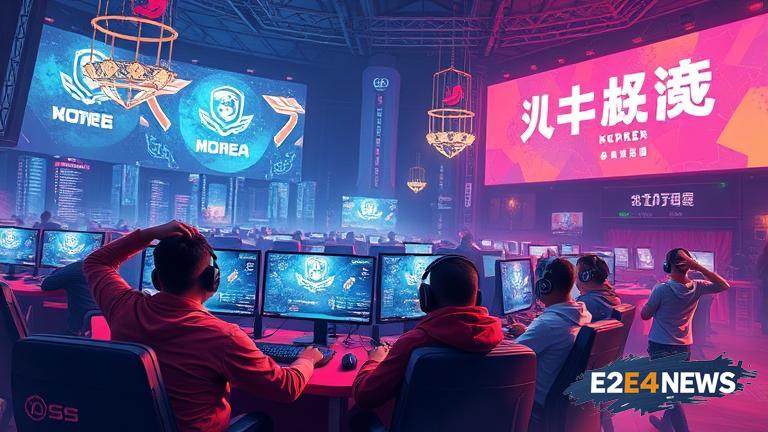South Korea’s esports industry has undergone significant development in recent years, transforming into a major player in the global gaming scene. The country’s strong gaming culture, coupled with its advanced technology and infrastructure, has created a fertile ground for esports to flourish. With the establishment of professional leagues and teams, South Korea has become a hub for competitive gaming, attracting fans and players from around the world. The industry’s growth has also led to the creation of new job opportunities, with many young Koreans pursuing careers as professional gamers, coaches, and analysts. Furthermore, the Korean government has taken notice of the industry’s potential, providing support and funding for esports initiatives and infrastructure development. As a result, South Korea has hosted numerous international esports tournaments, including the League of Legends World Championship and the Overwatch World Cup. The country’s teams have also achieved great success in these competitions, with many Korean players and teams winning top prizes. The esports industry has also had a positive impact on the country’s economy, generating significant revenue from sponsorships, advertising, and merchandise sales. In addition, the industry has helped to promote Korean culture and tourism, with many foreign fans visiting the country to attend esports events and experience the local gaming scene. However, the industry also faces challenges, such as the need for better infrastructure and facilities, as well as concerns over player burnout and fair compensation. To address these issues, the Korean government and esports organizations are working together to develop more sustainable and equitable practices. Despite these challenges, the future of esports in South Korea looks bright, with the industry expected to continue growing and evolving in the coming years. As the industry expands, it is likely to have a profound impact on the country’s entertainment and economy, creating new opportunities and experiences for fans and players alike. The rise of esports in South Korea has also led to increased interest in gaming and technology, with many young Koreans pursuing careers in these fields. The industry’s growth has also sparked innovation, with the development of new gaming technologies and platforms. Moreover, the esports industry has helped to promote social interaction and community building, with many fans and players connecting through online forums and social media. The industry’s impact on education has also been significant, with many schools and universities incorporating esports into their curricula and offering scholarships to talented gamers. In conclusion, South Korea’s esports industry has come a long way, transforming into a major player in the global gaming scene. With its strong gaming culture, advanced technology, and government support, the industry is expected to continue growing and evolving, creating new opportunities and experiences for fans and players alike. The industry’s impact on the country’s entertainment and economy will be significant, and its influence will be felt for years to come. As the industry continues to expand, it will be exciting to see how it develops and what new opportunities and challenges arise. The future of esports in South Korea is bright, and it will be interesting to see how the industry evolves and grows in the coming years. With the continued support of the government and the passion of the fans, the esports industry in South Korea is sure to remain a major player in the global gaming scene.
